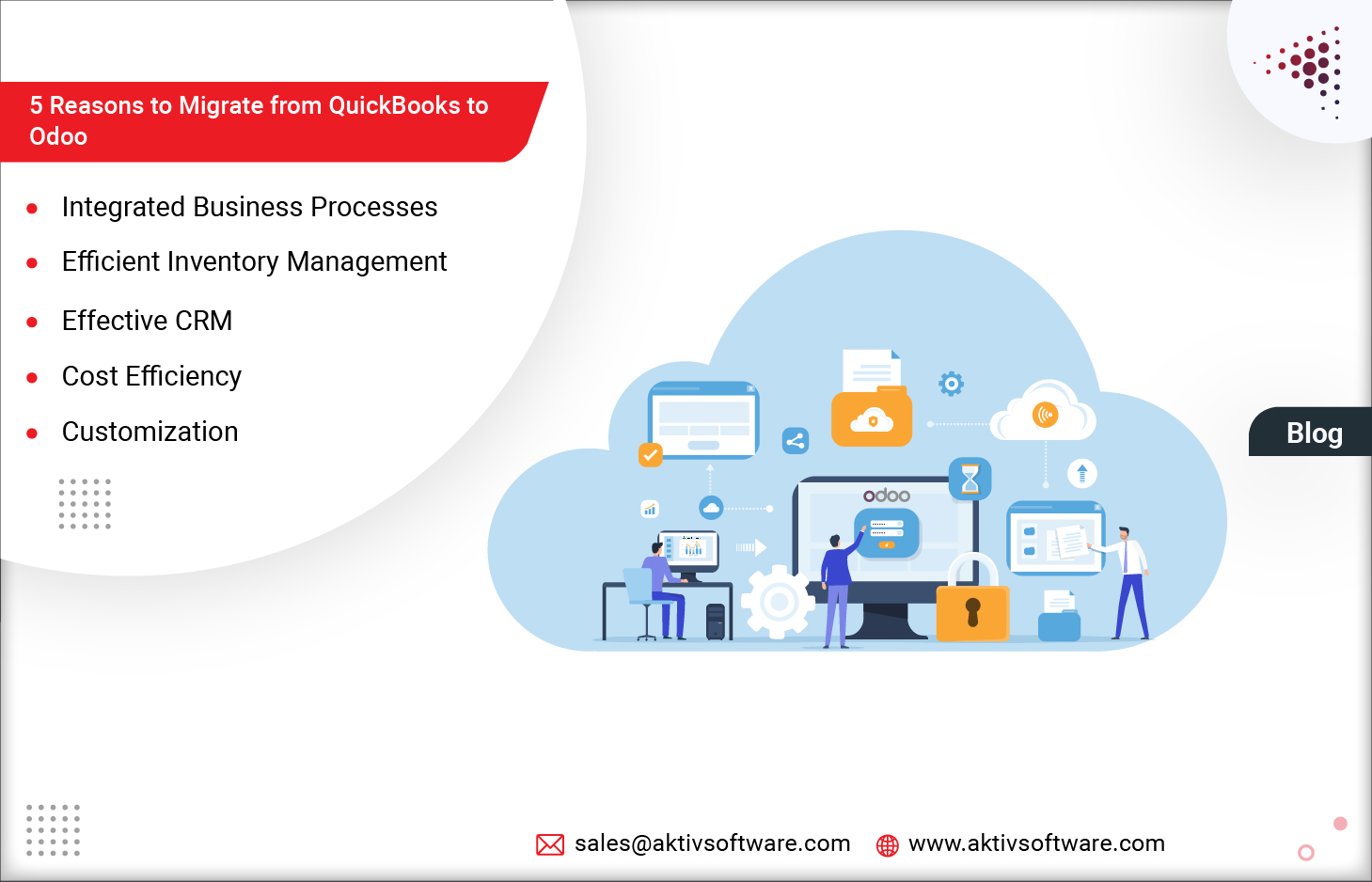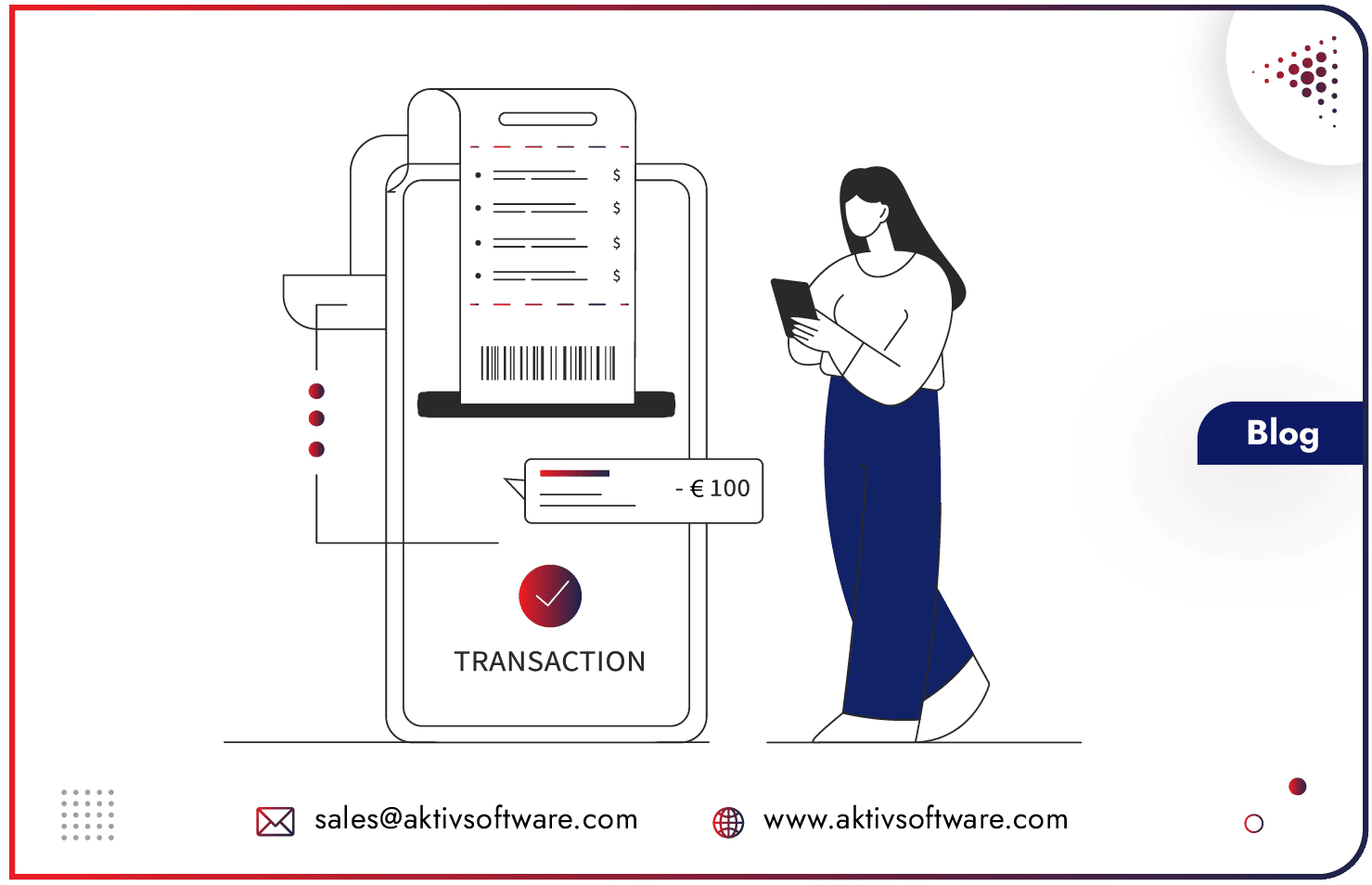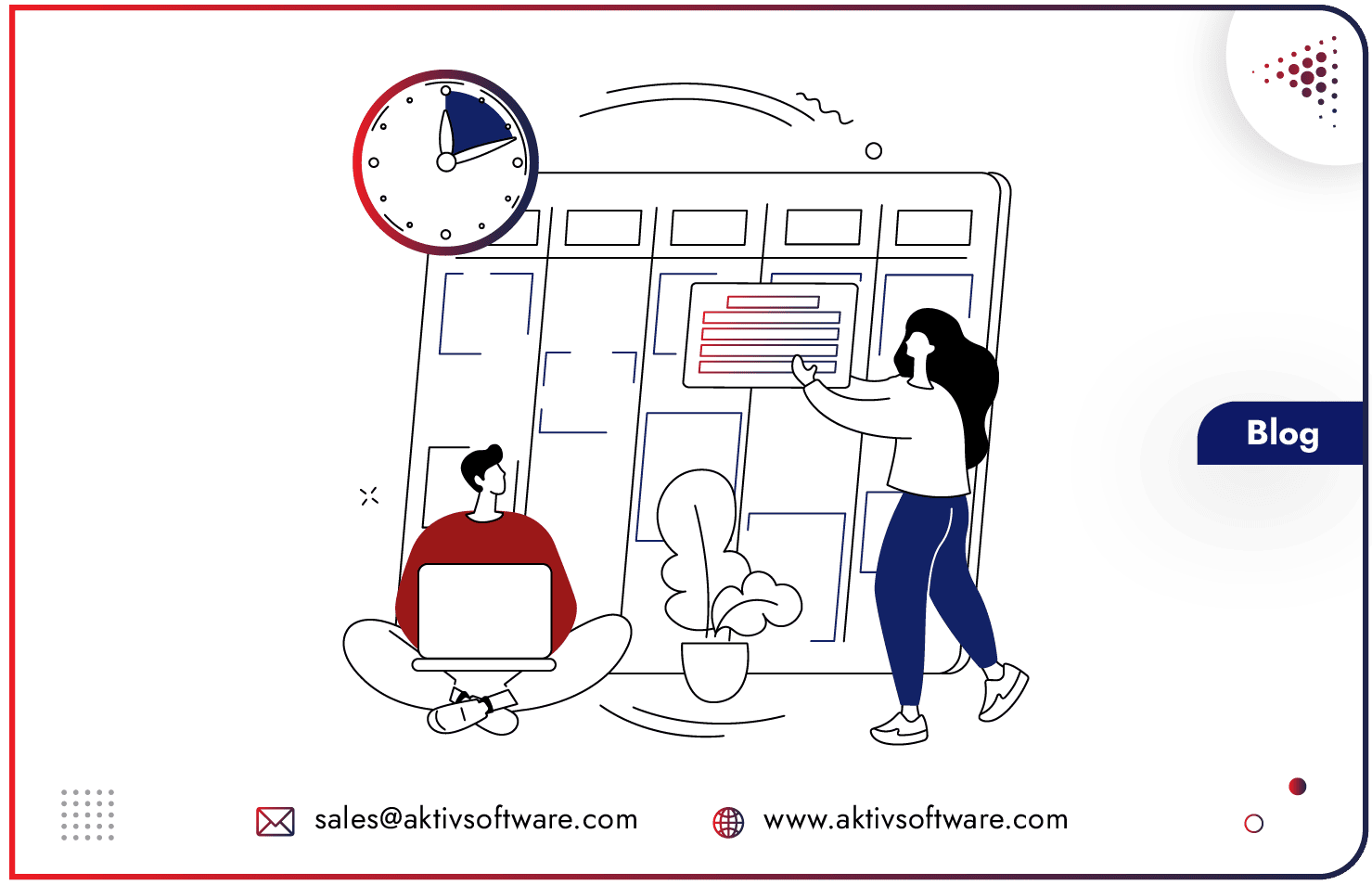As companies grow and evolve, their needs change and their financial management systems must keep pace.
QuickBooks has been a go-to solution for many businesses, but there comes a time when migrating to a more comprehensive and adaptable platform like Odoo ERP becomes not just a smart choice but a necessity.
In this blog, we’ll explore five compelling reasons to Migrate from QuickBooks to Odoo, illustrated with real-world scenarios.
Why should you consider QuickBooks to Odoo Migration?
QuickBooks is a robust accounting software that serves its purpose well for many businesses. However, it primarily focuses on financial accounting and lacks the extensive functionalities that Odoo can offer.
Odoo is an all-in-one business management software that encompasses various aspects of your business operations, from accounting and inventory management to CRM and e-commerce.
Here are 5 compelling reasons to consider Migrating from QuickBooks to Odoo:
1. Odoo’s Integrated Business Processes
Imagine running a manufacturing company that not only handles accounting but also manages inventory, sales, CRM, and more.
QuickBooks may have served you well when you were a smaller business, but as you expand, you’ll find yourself using a patchwork of different tools to handle various aspects of your operations.
With Odoo, you can consolidate your business processes into a single, integrated platform.
Let’s say, a growing e-commerce business using Odoo can streamline order processing, inventory management, and customer interactions in one place, alongside accounting, reducing data entry errors and improving customer satisfaction.
2. Efficient Inventory Management
Inventory management is a critical aspect of many businesses, from retail to manufacturing.
QuickBooks has some basic inventory management features, but they may not meet the needs of businesses with complex inventory operations.
The Odoo Inventory module provides comprehensive tools for tracking stock levels, managing warehouses, and optimizing order fulfillment.
A distribution company if decides to Migrate from QuickBooks to Odoo can track inventory across multiple warehouses, set up automated reordering, and easily manage batch or serial numbers, ensuring efficient stock management and reducing carrying costs.
3. Effective CRM Functionality
Maintaining strong customer relationships is vital for business growth.
While QuickBooks offers some customer management features, it lacks the advanced CRM capabilities that many businesses require.
The Odoo CRM module empowers businesses to manage leads, automate marketing campaigns, track customer interactions, and analyze sales pipelines.
If you are a B2B service provider and decide to Migrate from QuickBooks to Odoo for Accounting, you can get access to advanced CRM features– track leads, schedule follow-ups, and segment their customer base for targeted marketing, resulting in improved lead conversion rates and customer retention.
4. Scalability and Customization
QuickBooks is known for its user-friendly interface, but it can be limiting when your business outgrows its features. As your operations become more complex, you may find yourself searching for workarounds or third-party applications to meet your needs.
Odoo, on the other hand, is highly customizable and scalable. It allows you to adapt your system as your business evolves.
Having implemented Odoo for many global franchises, we have seen such companies use Odoo to customize sales processes, tax rules, and inventory management to accommodate local regulations and market demands while maintaining centralized financial control.
5. Migrate from QuickBooks to Odoo for Cost Efficiency
QuickBooks often comes with a subscription-based pricing model that charges per user or adds fees for additional features.
Over time, these costs can add up significantly. Additionally, as your business grows, you may need to pay for more licenses and support.
Odoo offers a cost-efficient alternative with an open-source core and a wide range of customizable modules.
Learn more about Odoo Pricing here.
Odoo’s comprehensive approach, integrated business processes, robust inventory management, and advanced CRM functionality make it an ideal choice for businesses seeking a holistic solution that can grow with them.
So, if you’re ready to unlock greater efficiency and drive success in your business, it might be time to consider making the move to Migrate from QuickBooks to Odoo.
Request a free demo or pricing estimate for your Odoo Implementation.






